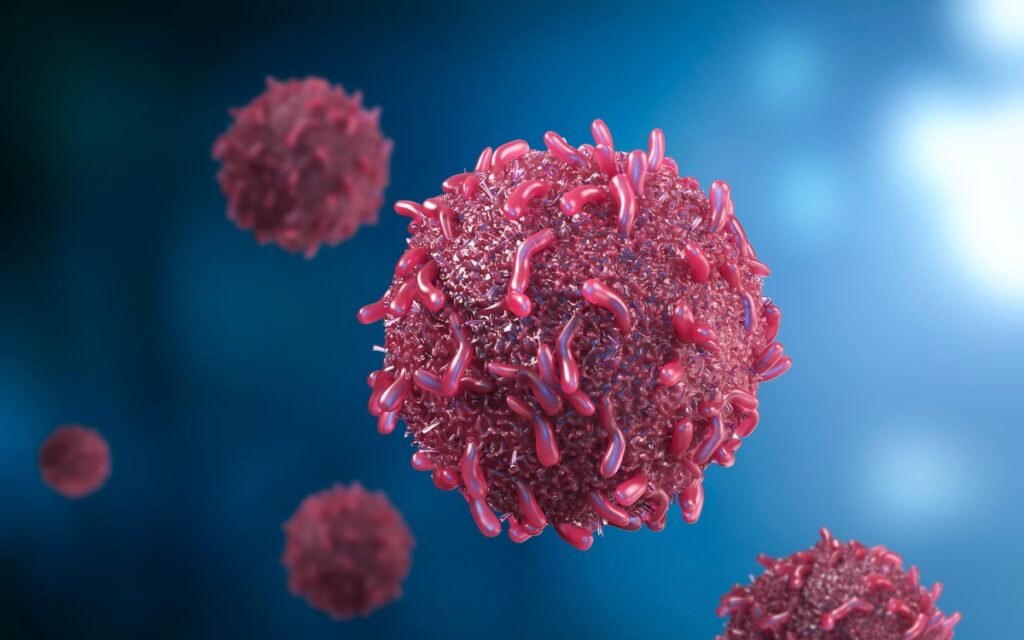ESMO 2023: LBA56
Neoadjuvant NSCLC is a challenging market with few treatment options and many unmet needs. Merck’s Keytruda is widely recognized as the best treatment for 1L NSCLC when combined with platinum chemotherapy, regardless of PD-1 status. In October 2023, the FDA approved Merck’s Keytruda before and after surgery, along with chemotherapy, to help shrink tumors and prevent recurrence. This is the first time that a PD-1 inhibitor has been approved for both pre-and post-surgical treatment in resectable NSCLC.
KEYNOTE-671 is a Phase III trial to evaluate the effectiveness and safety of pembrolizumab with platinum doublet chemotherapy as neoadjuvant/adjuvant therapy for patients with resectable stage II, IIIA, and resectable IIIB (T3-4N2) NSCLC. The interim analysis of KEYNOTE-671 results presented at ESMO 2023 showed a continuous improvement in overall survival (OS) and event-free survival (EFS) in the pembrolizumab arm. The difference in OS between arms has increased over time. The 12 month OS rate was 87.6% in the Keytruda arm and 87.7% in the placebo arm. The 24 month OS rate was 79.0% and 74.7%, respectively. The 36 month OS rate was 71.3% and 64.0%, respectively. The 48 month OS rate was 67.1% and 51.5%, respectively. The 12 month EFS rate was 73.8% in the KEYTRUDA arm and 60.8% in the placebo arm. The 24 month EFS rate was 61.5% and 41.4%, respectively. The 36 month EFS rate was 54.3% and 35.4%, respectively. The 48 month EFS rate was 48.4% and 26.2%, respectively.
About half of the patients experienced severe (grade ≥ 3) treatment-related adverse events (TEAEs) which led to discontinuation of treatment in one-fifth of them. The occurrence of severe (grade ≥ 3) immune-related adverse events and infusion reactions was notably higher in the group receiving pembrolizumab at 26.0% compared to the placebo group, which was at 9.0%. Sadly, there was one death due to an immune-related adverse event in the pembrolizumab group, while no such deaths were observed in the placebo group. The most common immune-related adverse events, seen in both the pembrolizumab and placebo groups, included hypothyroidism (10.9% and 1.5%, respectively), pneumonitis (6.1% and 1.8%), and hyperthyroidism (5.1% and 2.0%).
According to the company neoadjuvant Keytruda + Chemotherapy followed by resection and adjuvant Keytruda provided a statistically significant and clinically important improvement in OS compared with neoadjuvant chemotherapy and resection alone in patients with resectable stage II, IIIA, or IIIB (N2) NSCLC. The OS gains seen in KEYNOTE-671 with no new safety signals establish the perioperative regimen as a new standard of care for resectable early-stage NSCLC.
Conclusion
The FDA’s approval of Keytruda for neoadjuvant and adjuvant use in early-stage NSCLC represents a groundbreaking advancement in the field of lung cancer treatment. The drug’s consistent improvements in overall survival and event-free survival, coupled with its innovative application, position it to become the new standard of care for resectable NSCLC. Prior to Keytruda’s approval, OPDIVO from BMS had gained approval as a neoadjuvant treatment for NSCLC, showing significant benefits in event-free survival when used in combination with chemotherapy.
The competition in the neoadjuvant setting is intensifying, with AstraZeneca’s IMFINZI showing promising early data in the perioperative setting and Roche’s TECENTRIQ reporting expected results in 2024. The future of the neoadjuvant market is characterized by unpredictability, with various key players vying for dominance and facing their own unique challenges.
Merck’s Keytruda, already a global blockbuster, is poised to experience even higher sales with this new FDA approval. Merck’s extensive clinical development program in lung cancer, focusing on earlier disease stages and novel combinations, underscores the company’s commitment to advancing the field and providing patients with innovative treatment options. The evolving landscape in lung cancer therapy promises exciting developments and, in time, will reveal which key players emerge as leaders and which face challenges in this dynamic and competitive market.





























